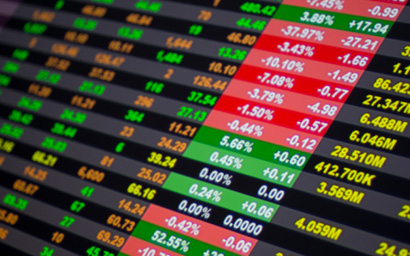Fund managers are preparing for Saudi Arabia to open its stock market, worth nearly $550 billion, to direct foreign institutional investment in the first half of 2015.
The Capital Market Authority, the Saudi regulator, says in an Arabic-language statement on its website that it will aim to publish draft rules for foreign investment next month, after which there will be a 90-day review period.
The regulator was responding to a statement from the Saudi cabinet giving approval to open up the stock exchange, which is the largest in the Middle East region by far.
“These announcements have been long-awaited and it is likely that they will trigger a surge of foreign inflows to the Saudi market, particularly in the context of an MSCI inclusion,” says Matthieu Belondrade, head of global emerging markets equities at Natixis Asset Management.
If Saudi Arabia was to enter the MSCI Emerging Market index, as many investors hope, it would have a weighting of about 5%, similar to Russia. If it were to enter the smaller frontier market index from MSCI, it would have a weighting of about 60%.
However, Sebastien Lieblich, executive director in the index research team at MSCI, was reported as saying that if Saudi Arabia only partially opens up to foreign investors, as China did with its ‘A’ shares system, it could be left as a standalone index.
Jahangir Aka, managing director of SEI Investments in the Middle East, says the Saudi authorities will take care to limit short term volatility after they open up the exchange to direct investment.
“I expect to see the introduction of some caps per stock, controls around which firms can buy, potentially a registration process for those who want to buy etc.,” he says.
Other observers predict that corporate governance in Saudi Arabia will be affected by the plan to open up, because foreign investors will gain voting rights.
“The decision to allow investors to own the shares directly and exercise voting rights will spur the concept of activist shareholders in the kingdom, as opposed to a purely monetary participation in the listed companies before,” says Muhammad Anum Saleem, senior associate, D&P Dhabaan and Partners.
Until now, only GCC nationals and foreigners resident in Saudi Arabia have been allowed to directly own stocks. Investors from outside the GCC have only been able to access Saudi equities through mutual funds or swap arrangements.
©2014 funds europe





